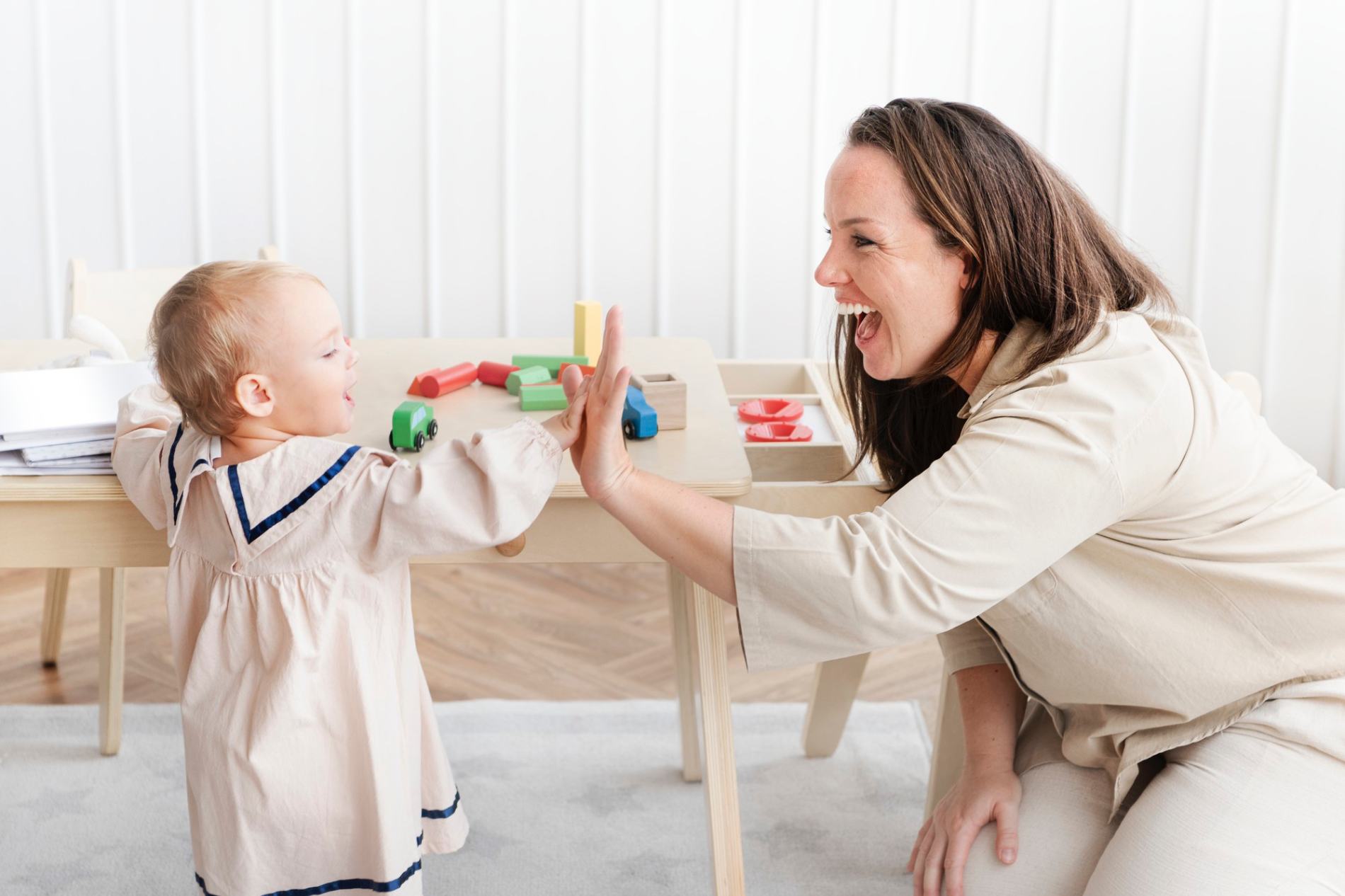Choosing the right childcare for your child is one of the most significant decisions parents face. The process can be overwhelming, and filled with a myriad of questions and concerns. Who will provide the best care for your little one when you can’t be there? This question often boils down to two main options: childminder or nursery. Both choices come with their own set of advantages and challenges, and finding the perfect fit for your child’s needs and your family’s circumstances can feel daunting. In this blog, we will explore the key factors to consider when deciding between a childminder and a nursery, helping you make an informed and confident choice for your child’s early years.
What is a Childminder?
A childminder is a professional caregiver who looks after children in their own home. Registered with Ofsted or through a recognised childminder agency, these caregivers provide a home-like environment where children can receive individual attention and care. A childminder may care for a maximum of six children under the age of 8, allowing for personalised interactions and the ability to cater to each child’s unique needs and routines. Childminders often offer flexible hours, accommodating parents’ varied schedules. They plan daily activities, meals, and outings, creating a nurturing and engaging setting that mirrors a family atmosphere. This personalised approach ensures that each child feels comfortable, cared for, and stimulated in a home-away-from-home environment.
What is a Nursery?
A nursery, on the other hand, is a structured childcare setting where children are looked after in a group environment. Nurseries are also regulated by Ofsted and must adhere to strict standards and guidelines to ensure a safe and stimulating environment for children. Typically staffed by a team of trained professionals, nurseries provide a variety of educational activities, playtime, and social interactions with other children. They operate on a fixed schedule and often have set opening and closing times, offering a more regimented routine compared to the flexible hours of a childminder. Nurseries usually cater to children from infancy up to school age, providing care and early education in a communal setting.
Childminder vs Nursery: Exploring the Benefits
Now that we have defined what a childminder and a nursery are, it’s essential to delve into the benefits of each option. Understanding the advantages of both can help you make an informed decision that best suits your child’s needs and your family’s lifestyle. Let’s explore the benefits of choosing a childminder vs nursery.
Benefits of a Childminder
Flexible Hours: Childminders often offer more flexible hours compared to nurseries, accommodating parents’ varying work schedules. They can provide care outside the typical 9-to-5 hours, making it easier for parents with unconventional or demanding jobs. Many childminders also assist with school drop-offs and pick-ups, adding an extra layer of convenience.
Home-Like Environment: A childminder’s home provides a comfortable, home-like setting for children, making the transition from home to childcare smoother. The familiar environment helps children feel secure and relaxed, and parents appreciate the nurturing, family-oriented atmosphere.
Mixed Age Groups: In a childminder’s care, children interact with peers of different ages, not just those in their own age group. This exposure fosters confidence as they learn to relate to older children and develop empathy and kindness while helping younger ones. Such interactions can enhance social skills and emotional development.
Personalised Attention: With smaller group sizes, childminders can offer more individualised care and attention to each child. This allows for tailored activities and routines that meet the unique needs and interests of each child, promoting a more personalised and enriching experience.
Continuity of Care: Childminders often care for the same children over several years, providing continuity that can be beneficial for a child’s emotional security and development. This long-term relationship builds trust and a deep bond between the child, the caregiver, and the family.
A Variety of Activities and Outings: Childminders have the flexibility of planning a wide range of daily activities and outings based on the children’s interests and needs. This can include trips to local parks, libraries, or community events, offering diverse and stimulating experiences that support learning and development.
Benefits of a Nursery
Structured and Educational Environment: Nurseries provide a structured setting with a focus on educational development. They offer a range of activities and programs designed to stimulate learning and growth, tailored to different age groups. This structured approach can help children prepare for the school environment and foster a love for learning from an early age.
Age-Appropriate Activities: In nurseries, children participate in activities that are specifically designed for their age group. These activities help children develop new skills and explore their creativity in a supportive environment. By being in separate groups, children can engage in tasks and games that are suited to their developmental stage, promoting more effective learning and engagement.
Professional Staff: Nurseries are staffed by trained professionals who have experience and qualifications in early childhood education. These caregivers are skilled in child development and can provide a high standard of care and education. Parents can feel confident that their children are in the hands of knowledgeable and competent professionals who are dedicated to their well-being.
Social Interaction: Nurseries offer a setting where children can interact with a larger group of peers. This social interaction is crucial for developing communication skills, teamwork, and friendships. Being in a nursery helps children learn to navigate social situations, share, and cooperate with others, which are important skills for their future school years.
Preparation for School: Nurseries provide an excellent introduction to the school environment. The structure, routines, and larger group settings in nurseries resemble those of schools, helping children transition more smoothly when they start Reception. This early exposure can make the first day of school less overwhelming, as children are already accustomed to a similar setting.
Additional Considerations when deciding between childminder or nursery
As you weigh your options between a childminder and a nursery, there are several additional factors to consider beyond the classic benefits.
Cost of Childcare: The cost of childcare can vary significantly depending on the provider and location. Generally, nursery fees tend to be higher than childminder fees. It’s important to assess your budget and determine what you can afford while ensuring your child receives quality care. Comparing the costs of different options in your area will help you make an informed decision.
Location and Convenience: The proximity of the childcare provider to your home or workplace can greatly impact your daily routine. A conveniently located childminder or nursery can save you time and reduce stress during drop-offs and pick-ups. Evaluate how the location fits into your daily commute and overall schedule.
Regulation and Standards: Both childminders and nurseries in the UK are regulated by Ofsted, ensuring they meet certain standards of care and safety. However, it’s always a good idea to check the latest inspection reports and reviews for specific providers to ensure they uphold high standards and provide a safe, nurturing environment for your child.
Conclusion
Deciding between a childminder vs nursery is a significant choice that depends on your preferences, your child’s temperament, and your family’s specific needs. Both options offer unique benefits and considerations that can impact your child’s development and your daily life. Whether you prioritize the home-like environment and flexibility of a childminder or the structured, educational setting of a nursery, the key is to choose what aligns best with your child’s personality and your family’s lifestyle. If you want to learn more about childcare options and make an informed decision, visit OneStop Booking for additional resources.
















